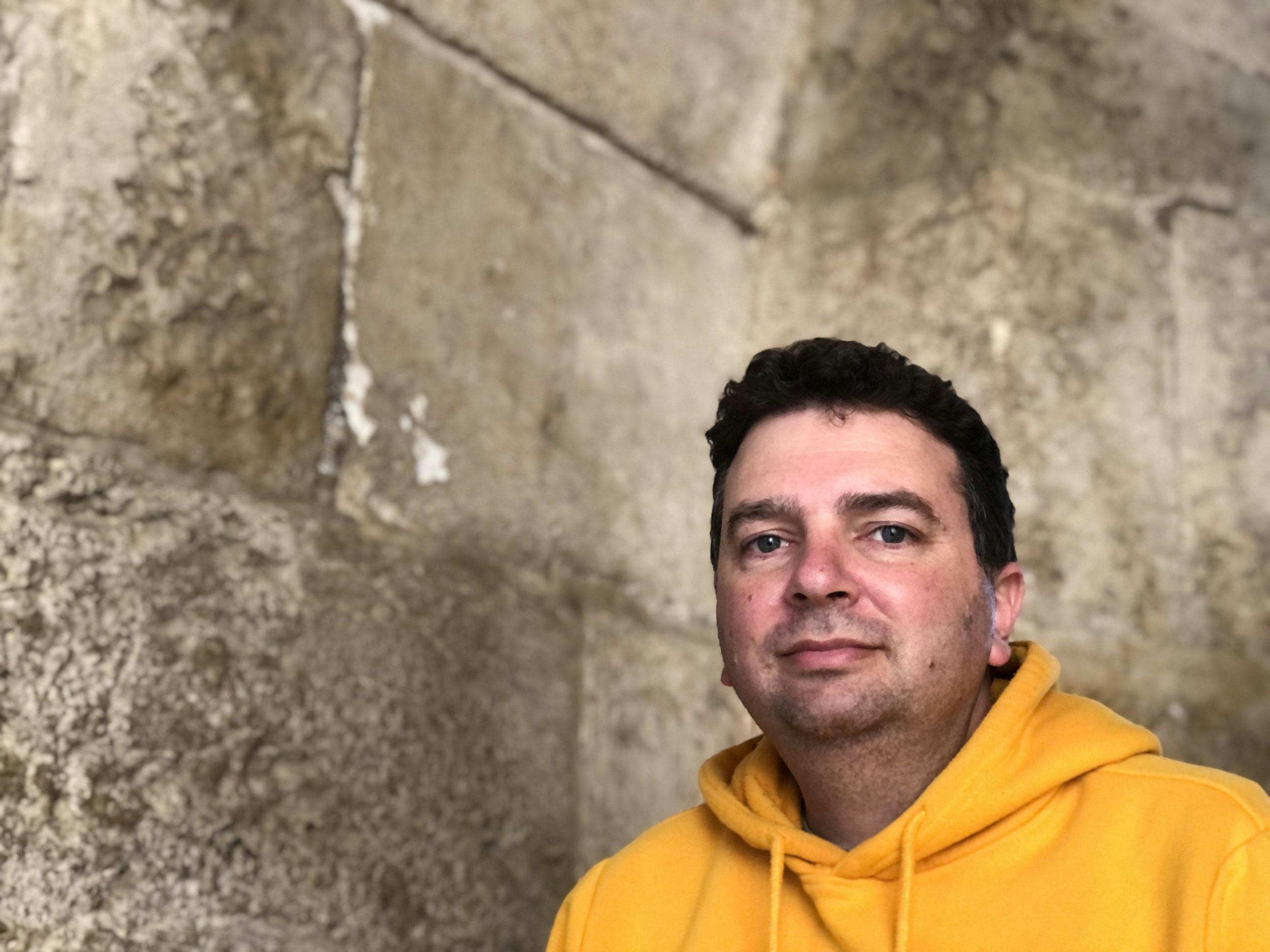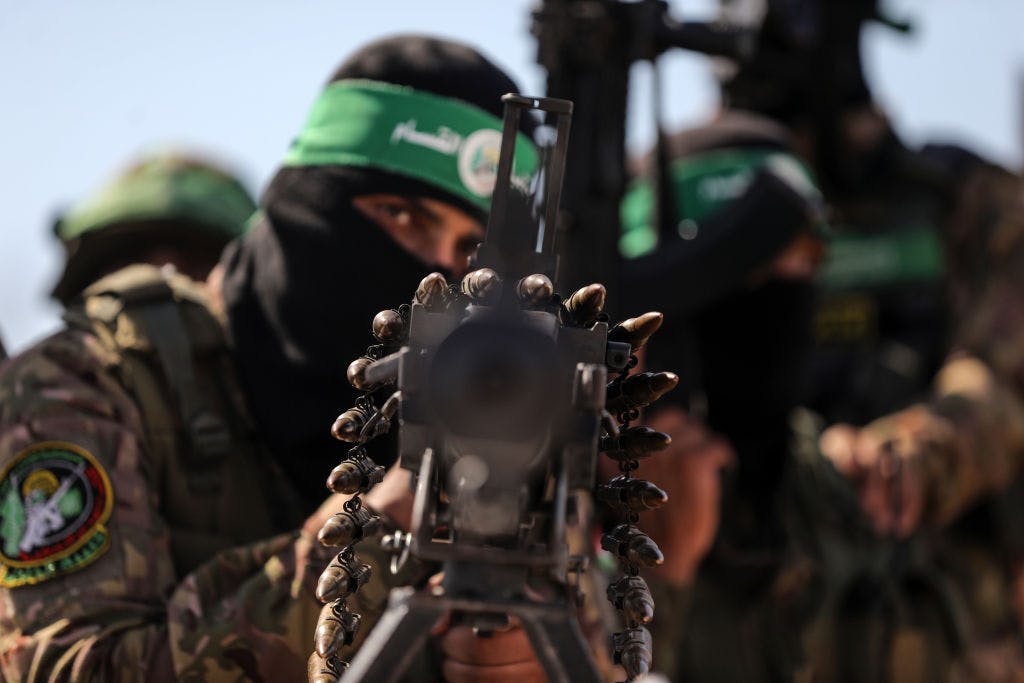Published: 7 February 2023
Last updated: 5 March 2024
For SAM STEIN, giving the children of Masafer Yatta a proper wrestling mat and techniques to burn their stress is a small way of fighting the occupation.
When someone first sees me, "wrestler" is probably just about the last word that pops into their head. At about 175 centimetres, I'm roughly average height, but my skinny frame seems to make people surprised that I can pick up household objects, let alone engage in a sport as physical as wrestling.
But since I took up the sport at the age of 15, wrestling has been the only physical activity I've really enjoyed. I get bored with basketball, football or baseball after 10 minutes. But I can wrestle for hours and want to keep going long after I've hit the point of exhaustion.
After more than a decade, it's become more than a hobby. Wrestling has helped me learn to focus, gain confidence, and work towards a goal. It's been a source of personal growth and is a part of my identity.
Before leaving New York, I coached high school wrestling at my alma mater, DRS Yeshiva High School. It was an incredibly fulfilling experience that gave me the opportunity to introduce growing young boys to the sport that's given me so much. We did well, too: everyone on the team earned a top-six finish in their weight class. Winning definitely made things more fun.
So, when I moved to Israel-Palestine in 2019, I knew I wanted to continue coaching wrestling,
As I became involved in Palestinian solidarity activism, I realised I had a great opportunity to mix my activism and my passion for wrestling.
I had formed deep relationships with the Palestinian communities in the South Hebron Hills, also known as Masafer Yatta, an area of the West Bank that faces rampant settler violence, discriminatory infrastructure, and regular home demolitions.
I mentioned to a friend there that I was interested in starting a wrestling club for the children in the village. He mentioned the idea to the kids, and while I didn't understand their responses in Arabic, their tone of voice, and the fact that they all started trying to tackle me, gave me the impression that they were very enthusiastic about the club. The Masafer Yatta Wrestling Club was born.

The first step was to buy a wrestling mat but wrestling mats cost thousands of dollars, even for a relatively cheap option. I crowdsourced funds via Twitter, obtained a grant from the British Shalom Salaam Trust, and - as the mat was shipped from Germany - wrangled customs.
Many friends asked me why I didn’t take a cheaper (and easier) route such as using puzzle pads or yoga mats. To me, the answer was simple: these children deserved the same mats as everybody else.
Living in Area C of the West Bank under full Israeli military control, they are deprived of so many of their basic rights. Their village doesn’t have access to running water or a proper electric grid, and their homes are at constant risk of demolition. The least I could give them was a real wrestling mat. Wrestling clubs in Area A — the portion of the West Bank under the control of the Palestinian Authority — or in Israel don’t use modified yoga mats.
For almost a year, I’ve been driving from my Nachlaot apartment to Masafer Yatta every Wednesday to coach children as young as five and as old as 16. The highlight of my week is when I reach Masafer Yatta and am greeted by children yelling my name and asking “musarah?” (Arabic for “wrestling,” musarah is one of my many new vocabulary words since starting the Masafer Yatta Wrestling Club.) It fills me with pride when the younger children rush to help roll the mats out on the village basketball court, and it’s amazing to see the progress the kids have made, from not knowing a single rule of the sport to being able to properly execute techniques.
The Masafer Yatta Wrestling Club is more than a deepening of the relationships I’ve made through my activism. It’s a form of activism itself. For me, wrestling offered a way to build confidence, improve my physical fitness, and develop a better relationship with my body. The children of Masafer Yatta don’t need those things. Many of them help their parents with shepherding and physical labor such as farming and construction. I’m constantly amazed at how strong and athletic they are for their age and size.
What these children need is an outlet for the stress they constantly deal with living under occupation, a kind of stress that nobody, least of all children, should have to deal with.
Even within the context of Palestinian life under occupation, the children in Masafer Yatta live under harsh conditions and have far less access to leisure activities. The Palestinian national wrestling team trains in Hebron, there is a Palestinian-owned Taekwondo gym in East Jerusalem and Ramallah boasts multiple Brazilian Jiu-Jitsu gyms. But, as far as I can tell, the Masafer Yatta Wrestling Club is the only combat sport facility in the entire Area C. I love coaching the children of Masafer Yatta. If the occupation ended tomorrow, I’d continue running the club. But in the face of the occupation, I hope it can be more than a fun distraction. When one of the goals of the occupation is to make Palestinian life in Area C so miserable that they leave, I hope that embracing the sport of wrestling can be an act of defiance for the children of Masafer Yatta.
Photo: Sam Stein wrestles with a Palestinian student




